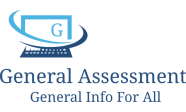What does come to your mind when you listen to the word Google cache? Something that slows down your PC or laptop! But, when we talk about Google Cache for a website, they are helpful.
Well, you must be wondering, why does Google need the cache? Further, what are its benefits? How can you check them? We’ll cover related questions in the upcoming sections.
Table of Contents
What does Google Cache mean?
Search engines visit the website, take a snapshot of the web page, and save it for later use. Google is the largest search engine. Sometimes, a web page may not load due to “XYZ” reasons. Then, Google displays the cached version of the page.
It refers to cache to see whether some changes are there or not. Google saves the cache from retrieving it later. Whenever you go to Google search results, click onto the right corner as mentioned in the figure below.
Now, you’ll see some screen “About this result” select cached on the bottom right.
Further, you’ll see some dates on the Google cached version page. It showed last when it cached along with its timings.
Google saves the cache in three forms:
- Full version
- Text only
- View source
Text only Google Cache:
Some websites support high-quality and well-researched content. Google text-only cache helps to index these websites.
Full version:
Full version Google cache considers all web elements like images, videos, podcasts for indexing. It uses them for voice searches and image-related searches. Also, Google gets the main idea regarding video with subtitles, video description, and tags.
View source:
Google generates its source code for later reference. You can view cached source code with “Ctrl+U” on windows. You may not understand the complete code. But, you can see the tags used by competitors. And accordingly, use it on your web pages.
What are the benefits of Google Cache?
Cache pages are not just for Google but also helps marketers and web developers determine the website’s health. Its uses are:
See how pages are indexed:
Web admins can see how their pages look when Google index them. If you’re are not cached, then the possibility is that there is some anomaly.
It could be a particular web page not following Google webmaster guidelines or following black-hat SEO. Otherwise, you can check if you assigned the “nofollow” or “noindex” attribute by mistake.
Also, you can take the help of SEO professional services to find any possible errors in your website indexing.
Get insights on page speed:
Google may be showing your cached page to the users. In this case, your website may be too slow to load. If it is very slow, Google will show the cached version of your website to the users. And this is a better chance to improve upon your page speed.
Optimizing your website speed will ensure that you satisfy core web vitals. Also, it will improve your overall website rankings on SERPs.
Track when Google last crawled your website:
Google caches are instrumental in telling how many times Google caches your website. Generally, Google tends to save the cache if you’ve made specific changes to your website.
Well, it is highly beneficial if you can’t access Google Seach Console. Google caches will give you a clear idea about server logs and Google timestamps on your web pages.
View changes in Competitor’s website:
Google cache will give insights on changes in competitors’ websites. Imagine you can see any minor changes on your competitor’s website. You can visualize:
- Slight variations on other websites.
- See new keywords upcoming in the market.
- Look out why there is a sudden shift in your rankings over your competitor’s website.
Get an idea about errors in content:
Google caches are the shortcut to know content errors within seconds. Additionally, content strategists can look at the text-only version of Google cache. It will help eliminate all the extra elements on the website. And give a clear-cut view of the web page context.
Also, you can get an idea about unnecessary internal links and keyword stuffing. It is easy to figure out content violating SEO rules.
Limitations of Google Cache:
You may get worried, why Google is not indexing your website. Google caches are not a perfect source of information. Sometimes Google may index your website but not save its cached version.
Furthermore, there could be an error in the mobile-friendly website. Many websites use mobile-first indexing. It can cause conflict with the desktop version of the website. So, Google caches are not full proof.
Conclusion:
For final takeaways, the cache may seem to be a small part of Google. But, in reality, they can give insightful information on the various website parameters. You can check how Google is caching your web pages. Further, it is storehouse and collection your website and competitor’s one. So, it becomes essential to know what Google cache conveys.
More Read ON: General Assessment






Realy informational contant .
Thanks for your responce Dear